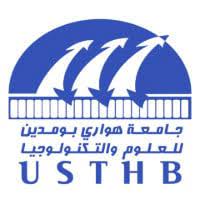Discover global hiring strategies from leading recruitment platforms
Learn more
Speed up your global expansion! Expand smartly in 150+ countries with the #1 rated EOR globally.
Explore Multiplier EOR

Your guide to the employment landscape, working customs and local labor laws in Algeria.
Capital
Algiers
Currency
Algerian Dinar (DZD)
Languages
Arabic, Berber
GDP per Capita
$4,214
Employer Tax
26%
Payroll Frequency
Monthly
A regional power in the North African region, Algeria has the highest human development index among the non-island African countries. The country’s economy is supported by rich natural gas and oil reserves. It is regarded as one of the largest economies on the continent.
Major economic hubs:
Algiers, Oran, Constantine
Skills in demand:

Local: 1
World: 3728

Local: 2
World: 3732
Local: 3
World: 3770

Local: 4
World: 3843
Local: 5
World: 4113
Emploitic.com, Jobisland
3,598,000
global career company, expat.com, Al Abira
Top Local Job Boards:
Top Local Job Boards
Number of LinkedIn users:
Number of LinkedIn users
Top Recruitment Agencies:
Some of the common jobs and their monthly salaries in Algeria are listed below:
| Job Title | Average Monthly Salary (DZD) | Average Monthly Salary (USD) |
| Accountant | 134,000 | 992 |
| Office manager | 155,000 | 1,147 |
| Secretary | 81,500 | 603 |
| Financial analyst | 238,000 | 1,762 |
| Business analyst | 226,000 | 1,673 |
In Algeria, a large number of the labor population is employed in the services sector. Get to know more about the rules and regulations prevailing in the country for a smooth employment process.
Employment contracts can be oral or written, but a written form is mostly preferred. The language of the contract can be Arabic or French, depending on the familiarity of both parties.
Algeria follows a probationary period of six months.
| Date | Name | Type |
| 1 Jan | New Year | Public Holiday |
| 12 Jan | Berber New Year | Public Holiday |
| 10 Apr | Eid al-Fitr (Tentative Date) | Public Holiday |
| 11 Apr | Eid al-Fitr Holiday (Tentative Date) | Public Holiday |
| 1 May | May Day | Public Holiday |
| 17 Jun | Eid al-Adha (Tentative Date) | Public Holiday |
| 18 Jun | Eid al-Adha Holiday (Tentative Date) | Public Holiday |
| 5 Jul | Independence Day | Public Holiday |
| 8 Jul | Muharram (Tentative Date) | Public Holiday |
| 17 Jul | Day of Achura (Tentative Date) | Public Holiday |
| 16 Sep | The Prophet’s Birthday (Tentative Date) | Public Holiday |
| 1 Nov | Anniversary of the Revolution | Public Holiday |
| Type of Leave | Time Period | Mandatory |
| Annual Leave | 30 days | Yes |
| Sick Leave | 15 days | Yes |
| Maternity Leave | 14 weeks | yes |
Leave Compliance
Payroll cycle
Algeria follows a monthly payroll cycle
Minimum wage
The minimum wage in Algeria is 18,000 Algerian dinars (170 dollars) per month.
Overtime pay
The Algerian labor law prohibits forced overtime employment. No employee should work beyond 8 hours of overtime a week. However, they are entitled to overtime pay of 50% of the regular hourly rate for their extra work.
Algeria has extensive social security benefits and covers retirement, illness, unemployment, and work accidents. Employers contribute 26% of the employees’ gross salary for social security contributions.
Employees contribute 9% of their gross salary towards social security.
Algeria follows a progressive income tax structure for individual taxpayers.
| Annual taxable income (DZD) | Rate (%) |
| Less than 240,000 | 0 |
| 240,001 to 480,000 | 23 |
| 480,001 to 960,000 | 27 |
| 960,001 to 1,920,000 | 30 |
| 1,920,001 to 3,840,000 | 33 |
| More than 3, 840,000 | 35 |
A standard rate of 19% is followed in Algeria.
Algeria does not have statutory 13th-month pay.
Below are some statutory benefits that Algerian employers offer their employees:
Permanent employment in Algeria can be terminated due to redundancy, serious misconduct, or economic reasons.
The notice period followed in Algeria ranges from six to twelve months.
Severance pay is allowed only for those employees who completed at least 2 years of employment in the firm. Employees will be entitled to 15 days’ wage for each completed service year.
Entry visas are required for specific nationalities (eg: EU, US), while citizens of countries such as Morocco and Tunisia do not need an entry visa. Foreigners need temporary work authorization along with a work visa to stay and have employment in the country. It is renewable and is given a maximum validity of 2 years.
Expand globally and hire talent in 150+ countries without having to set up an entity. Use Multiplier's Employer of Record to manage the complete employee experience while having the flexibility to enter new markets.

Overtime Pay
Minimum Wage
Overtime Pay
Visa and Immigration
By use case
By team
By company size